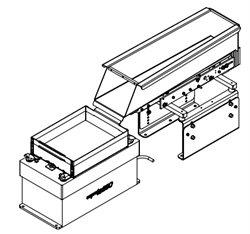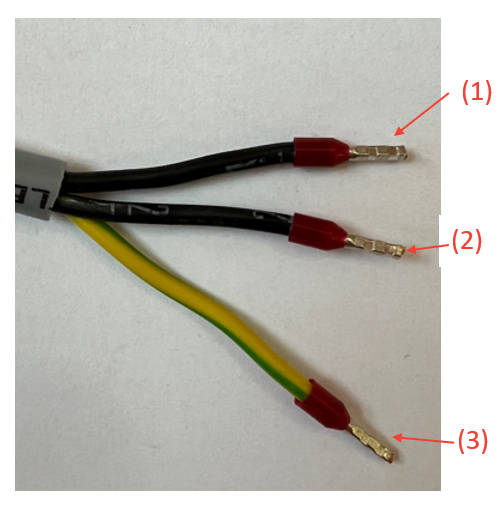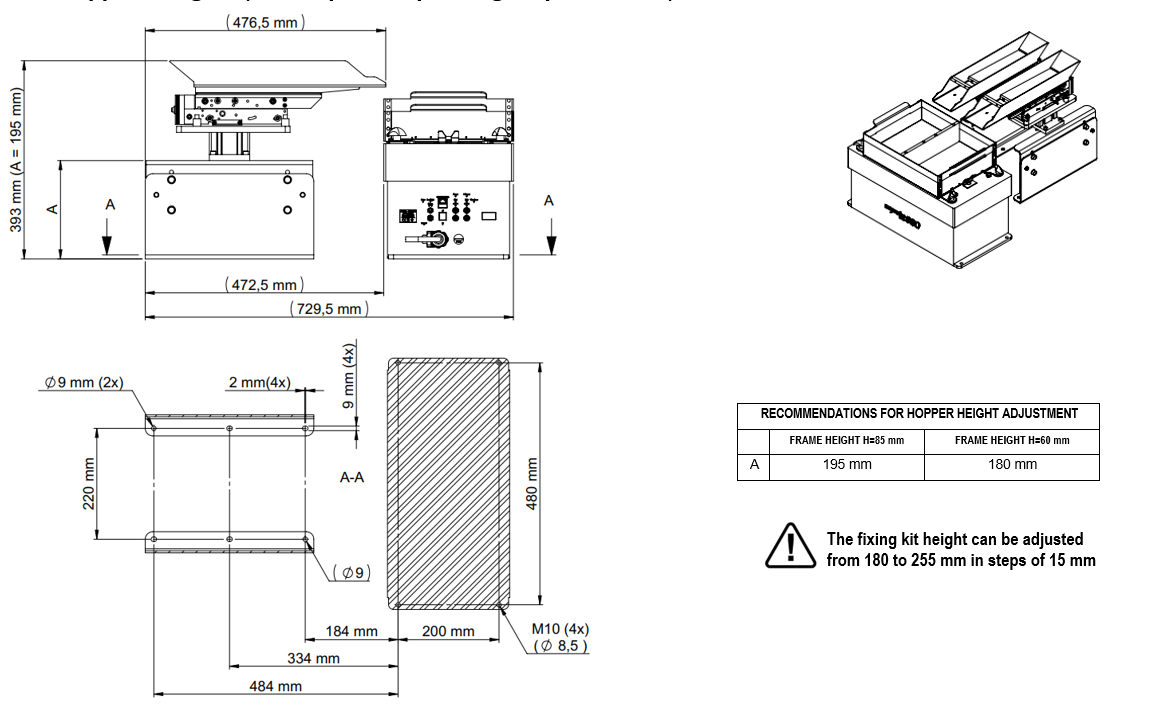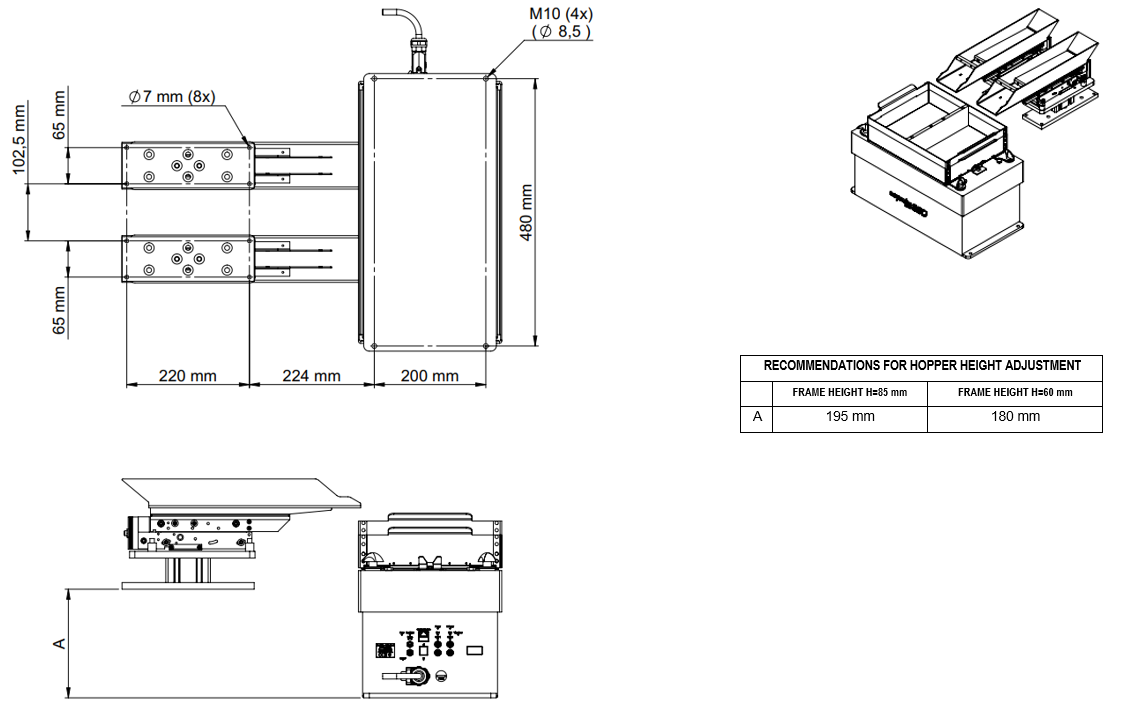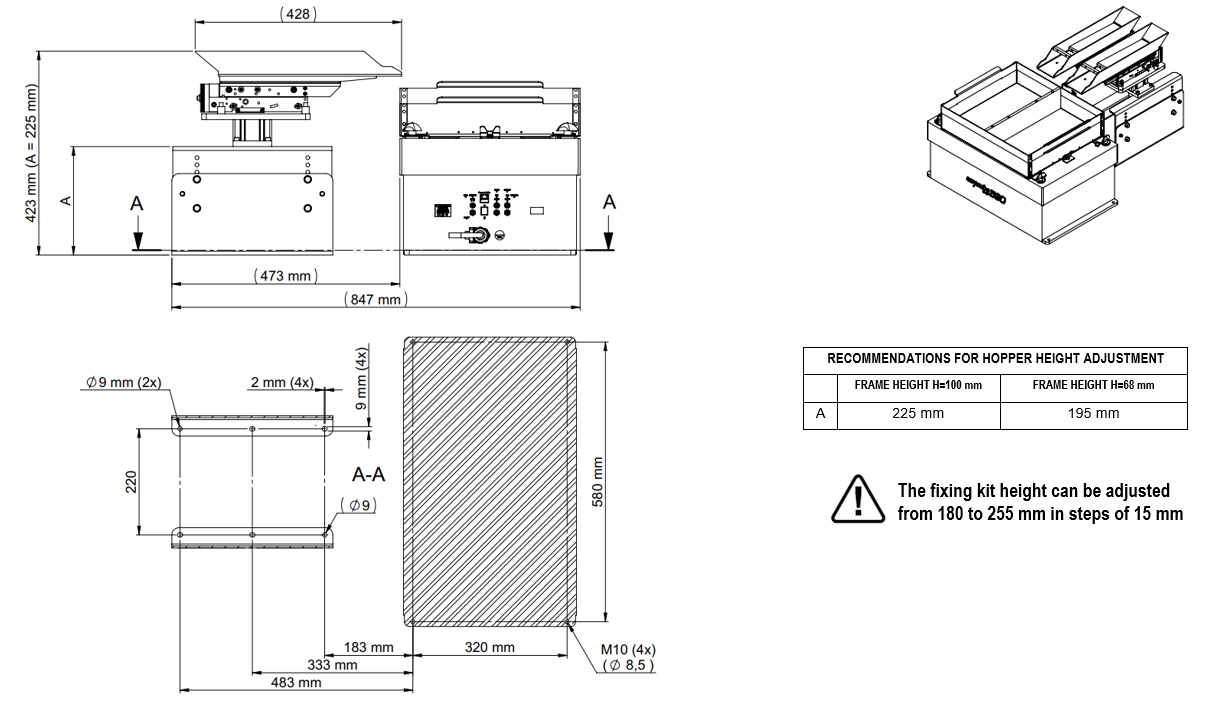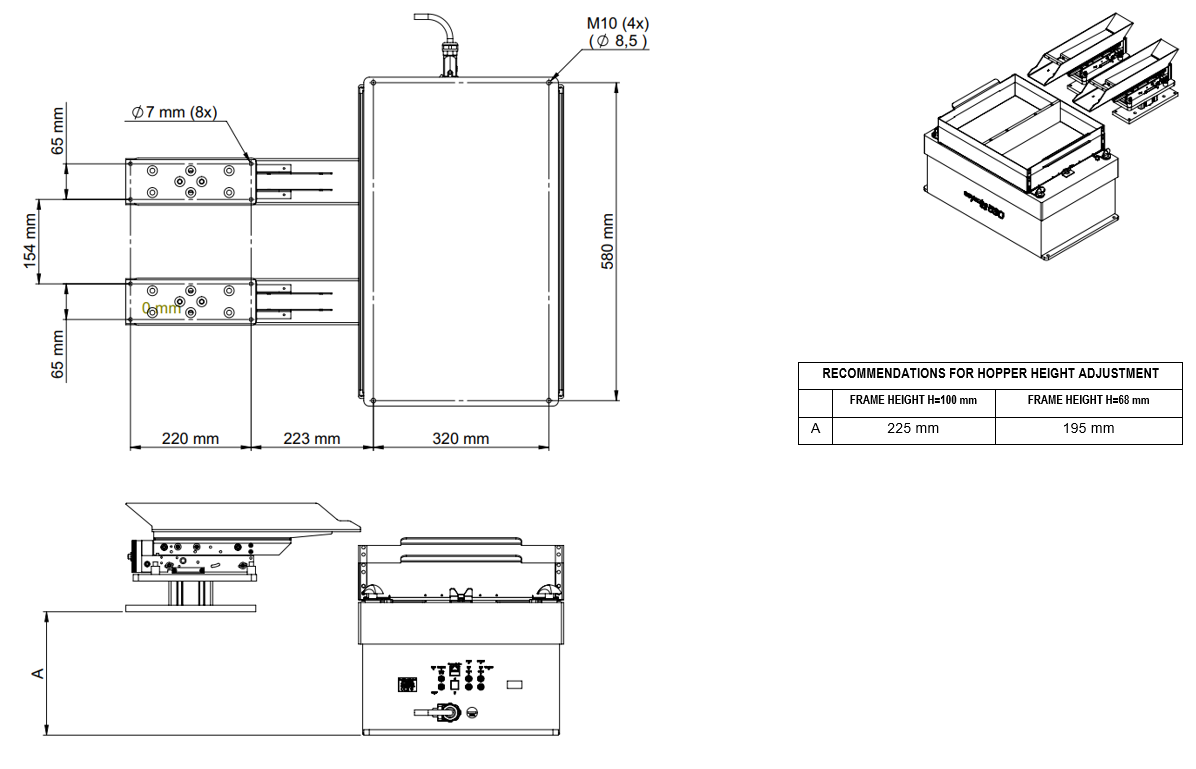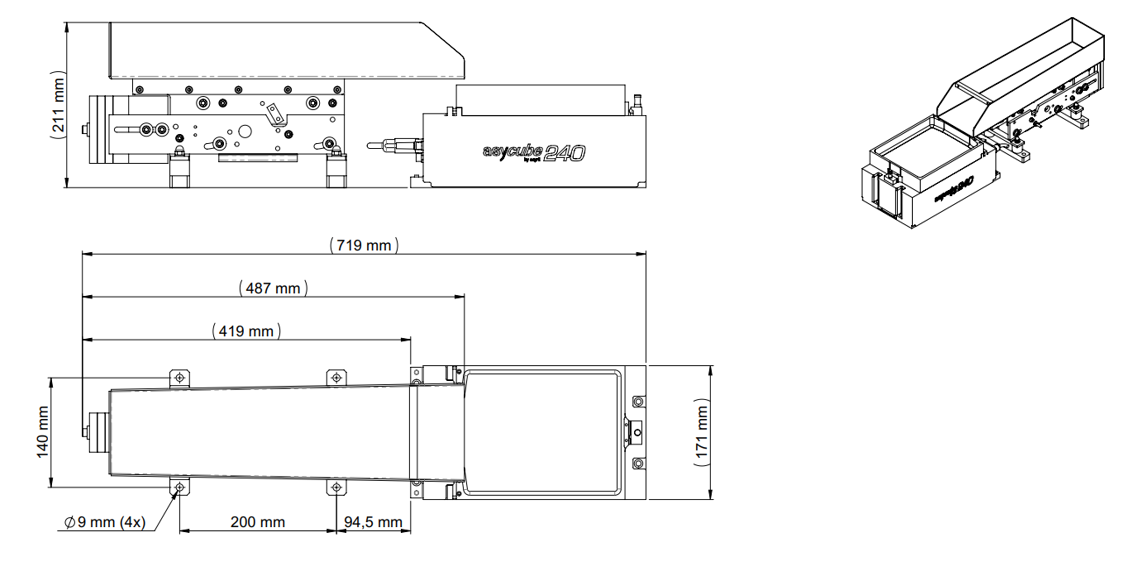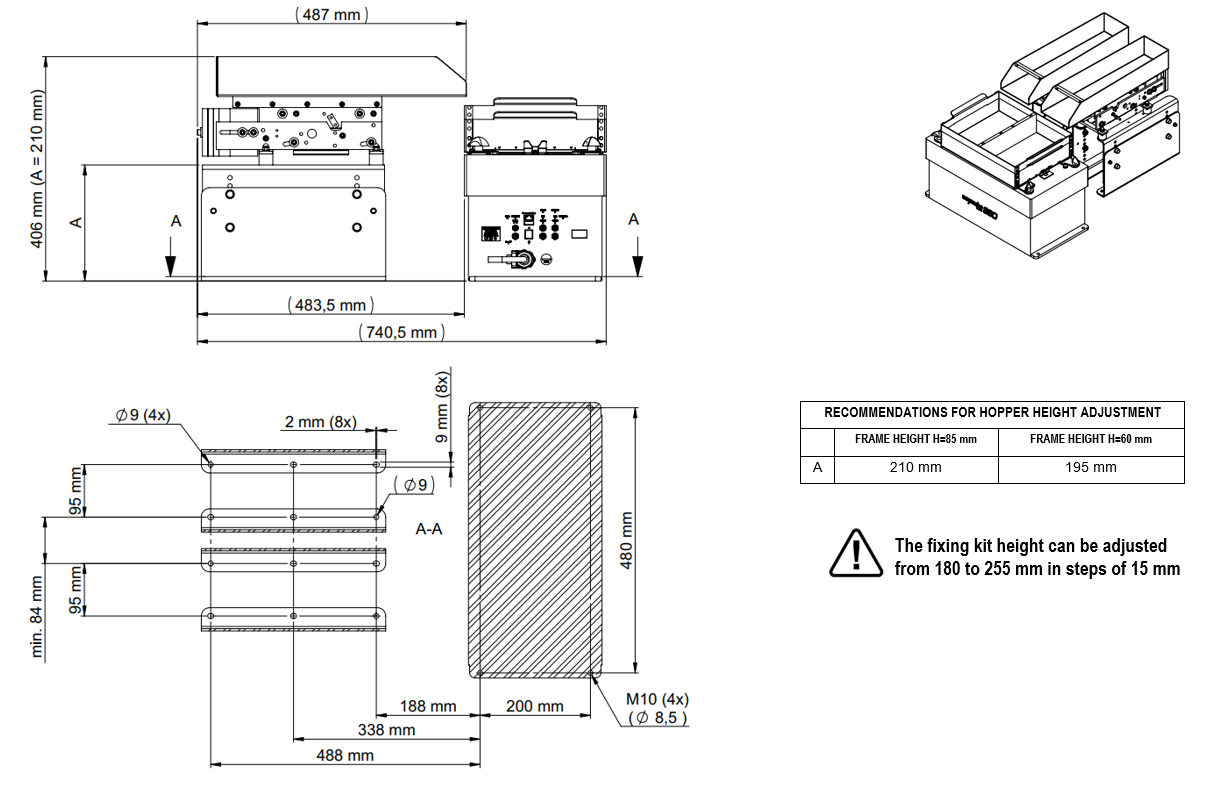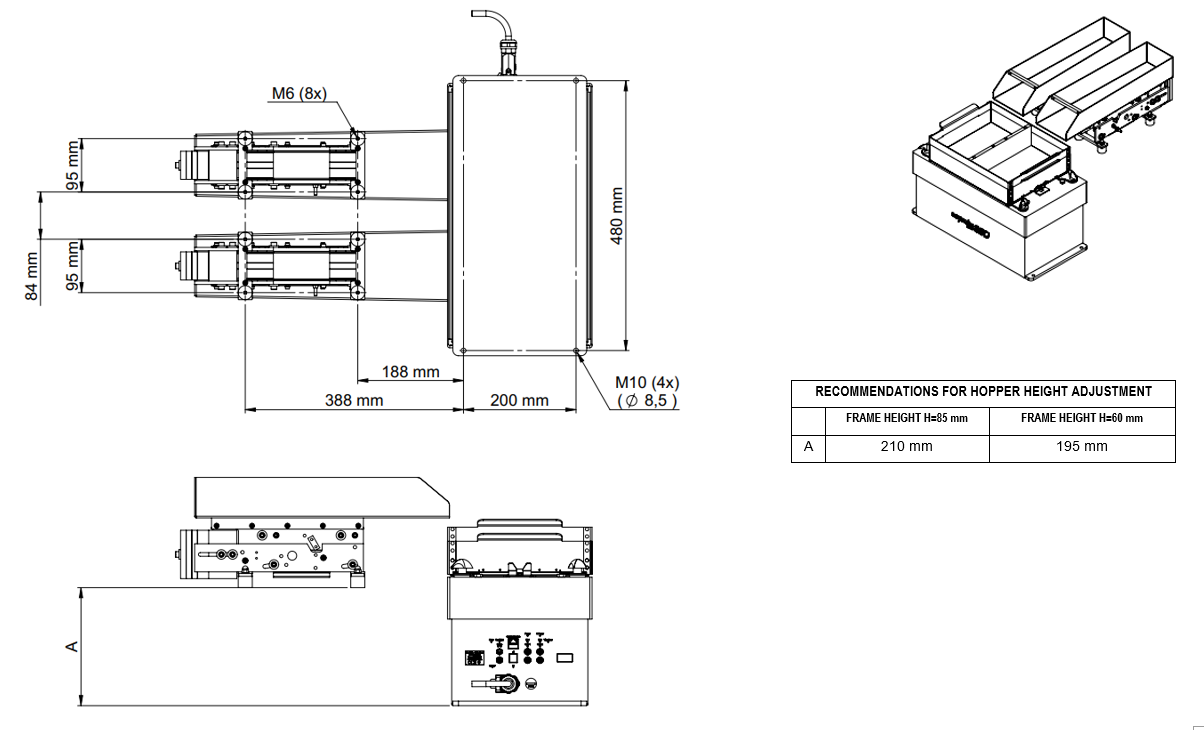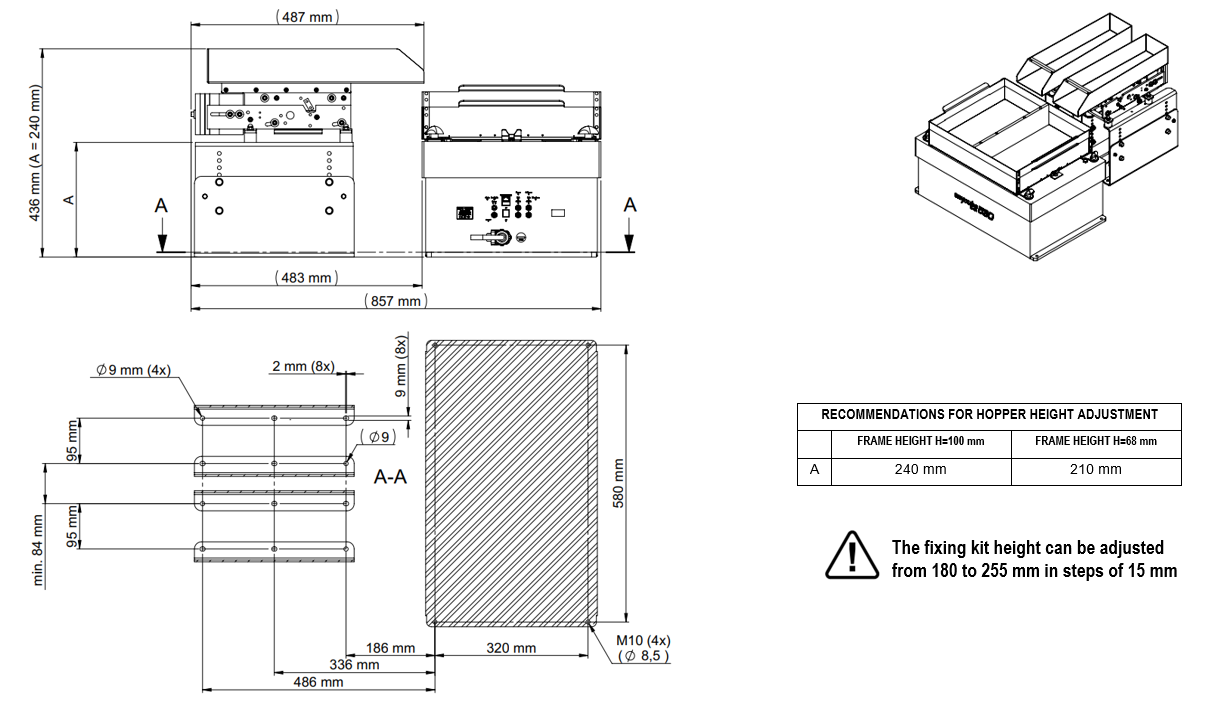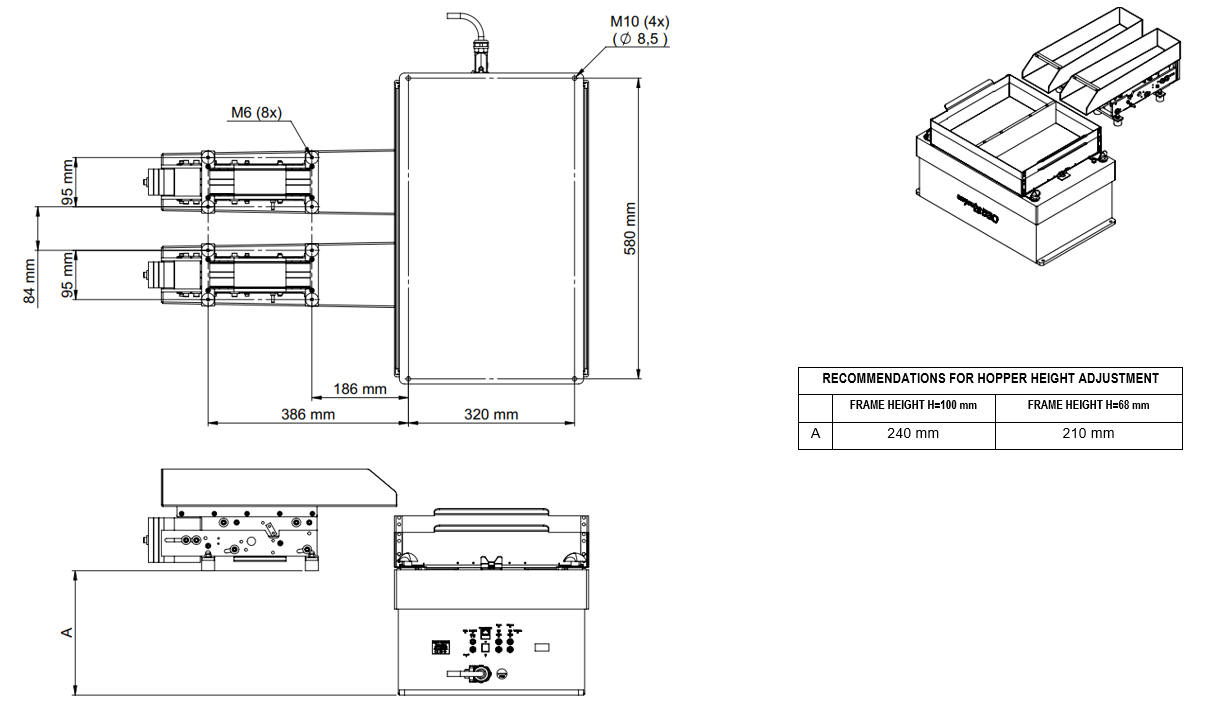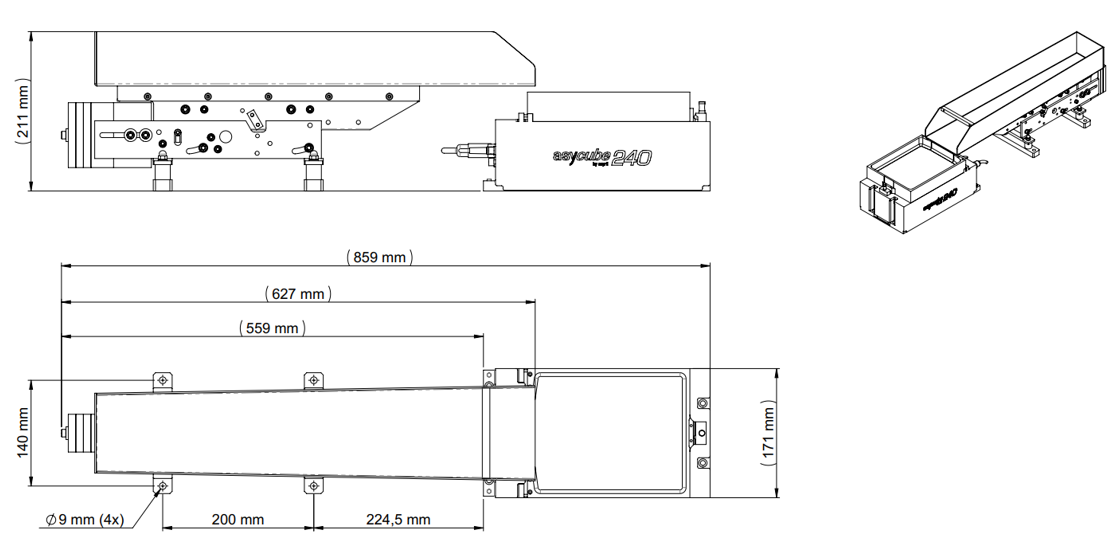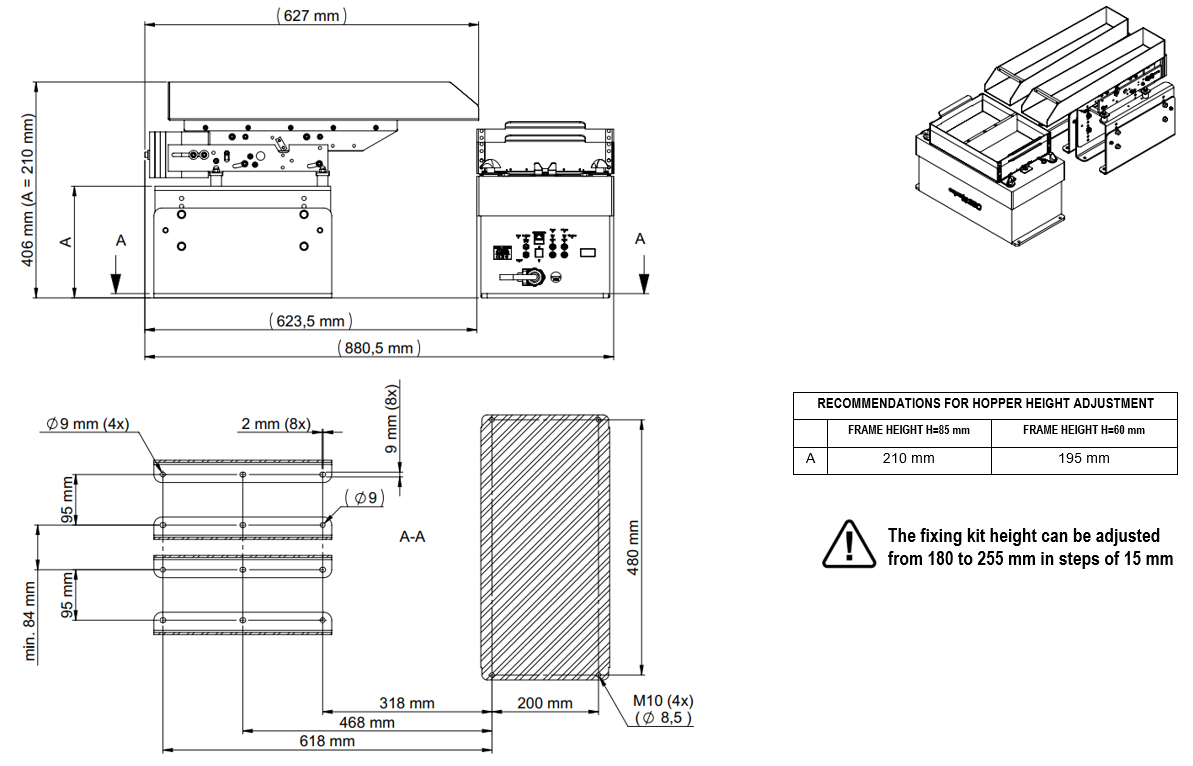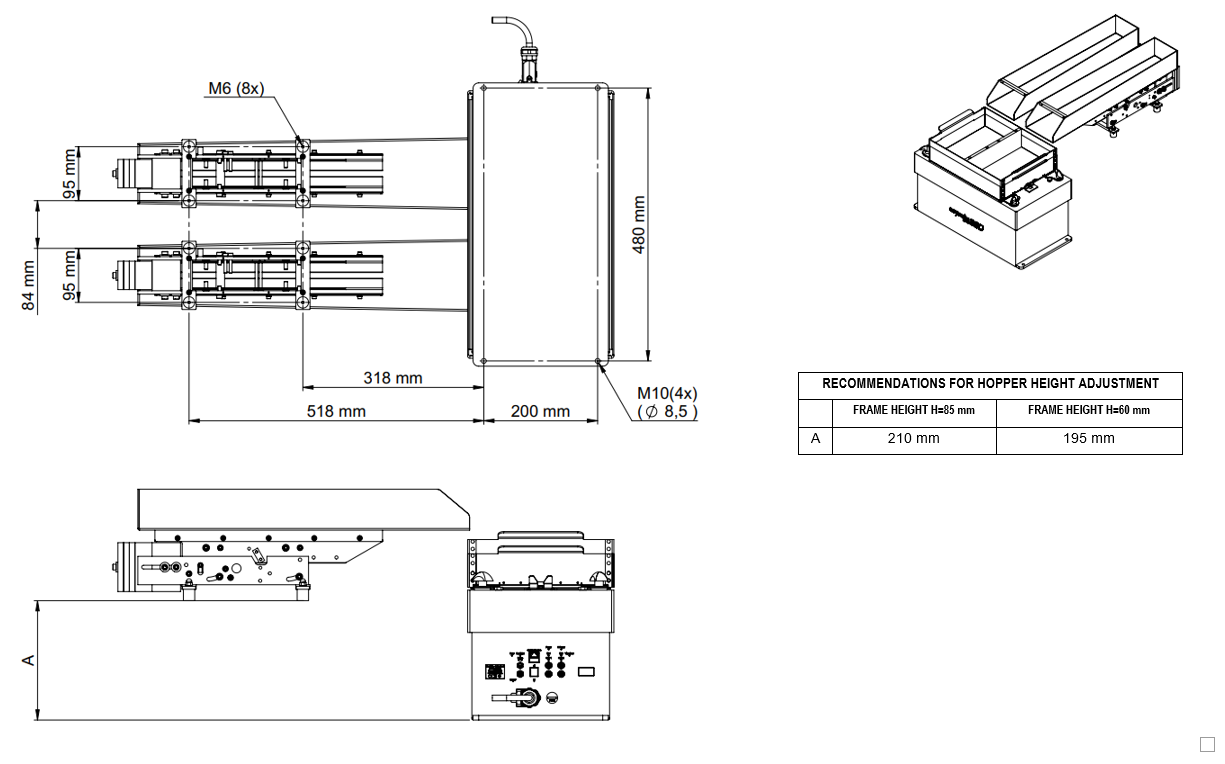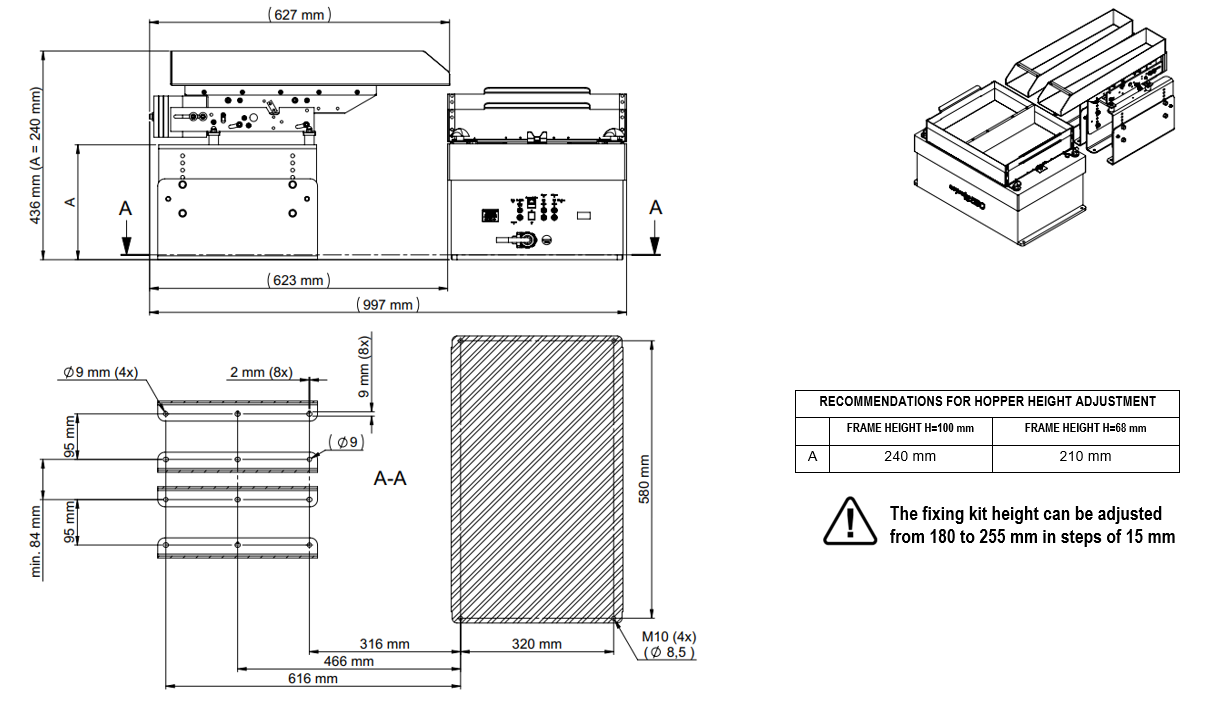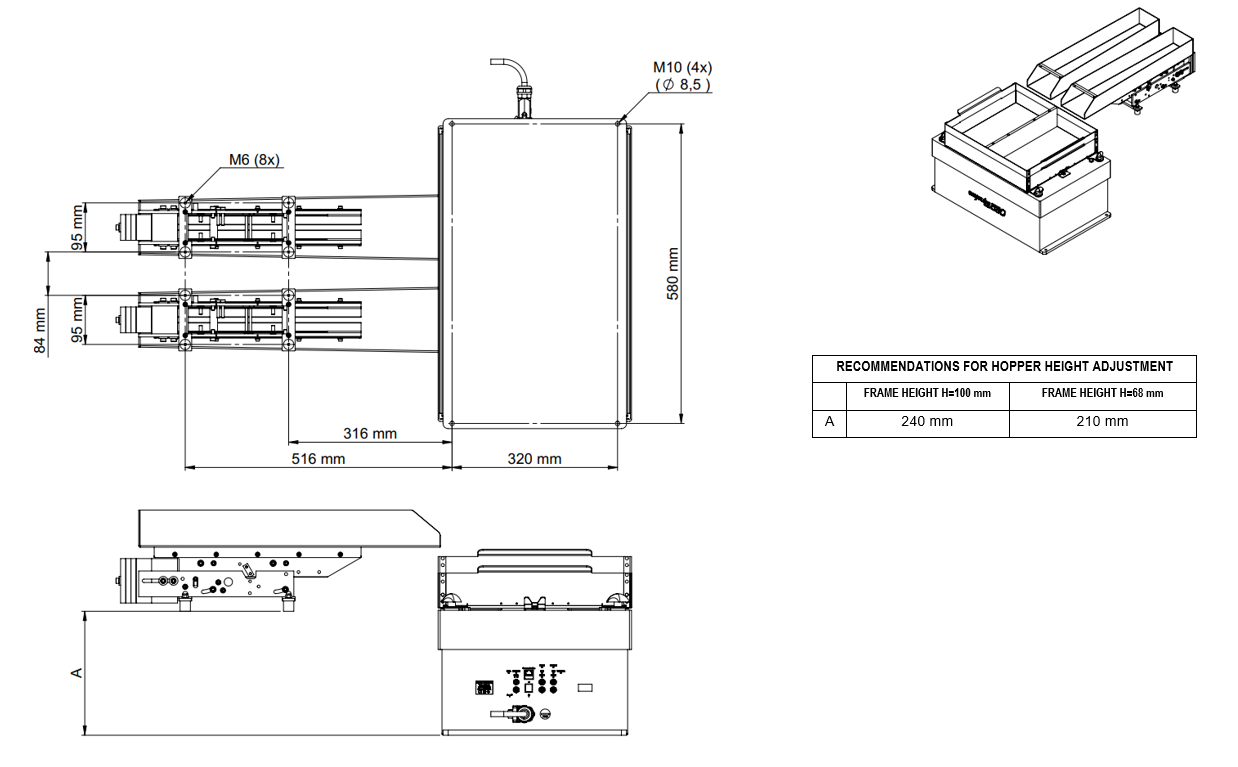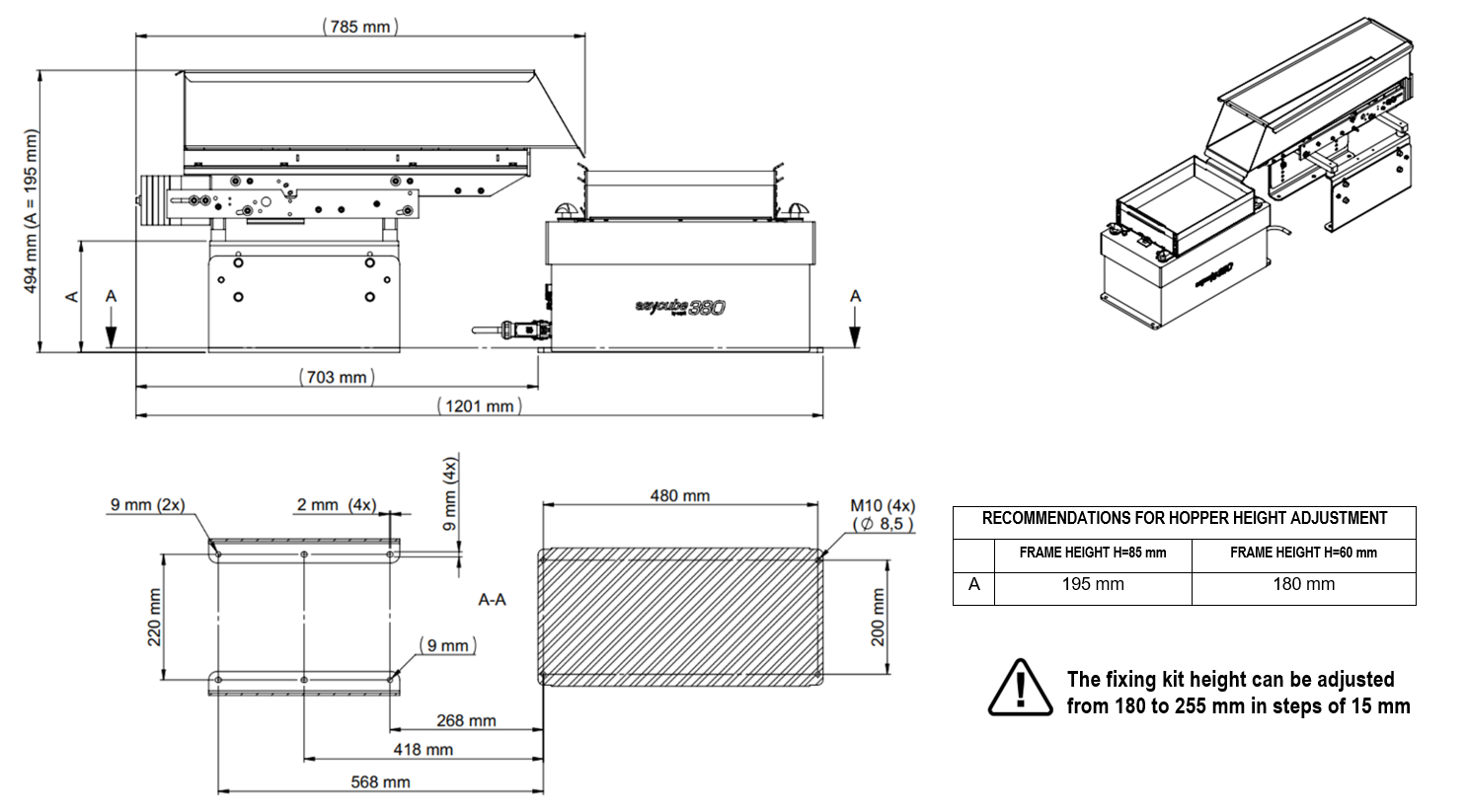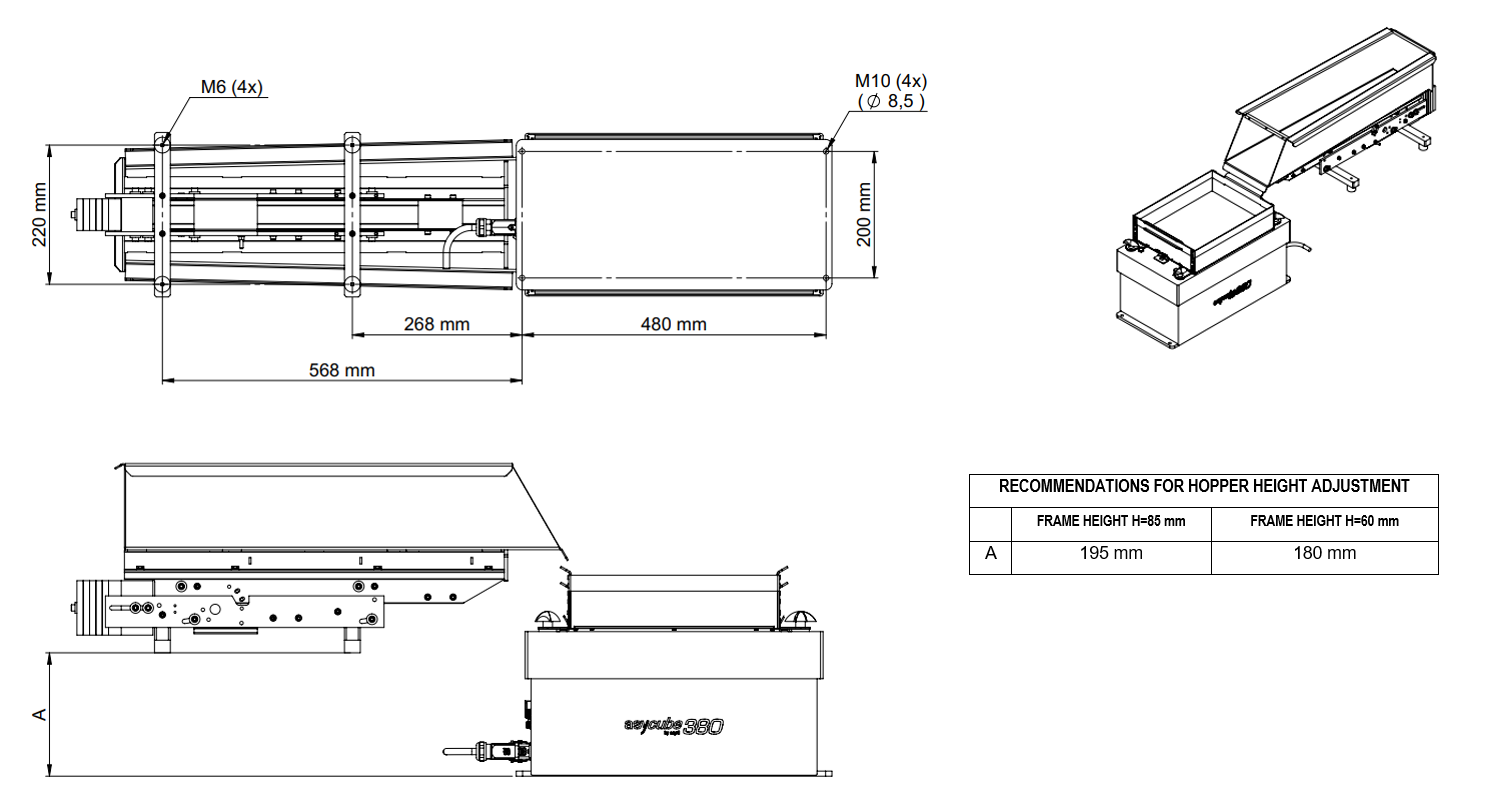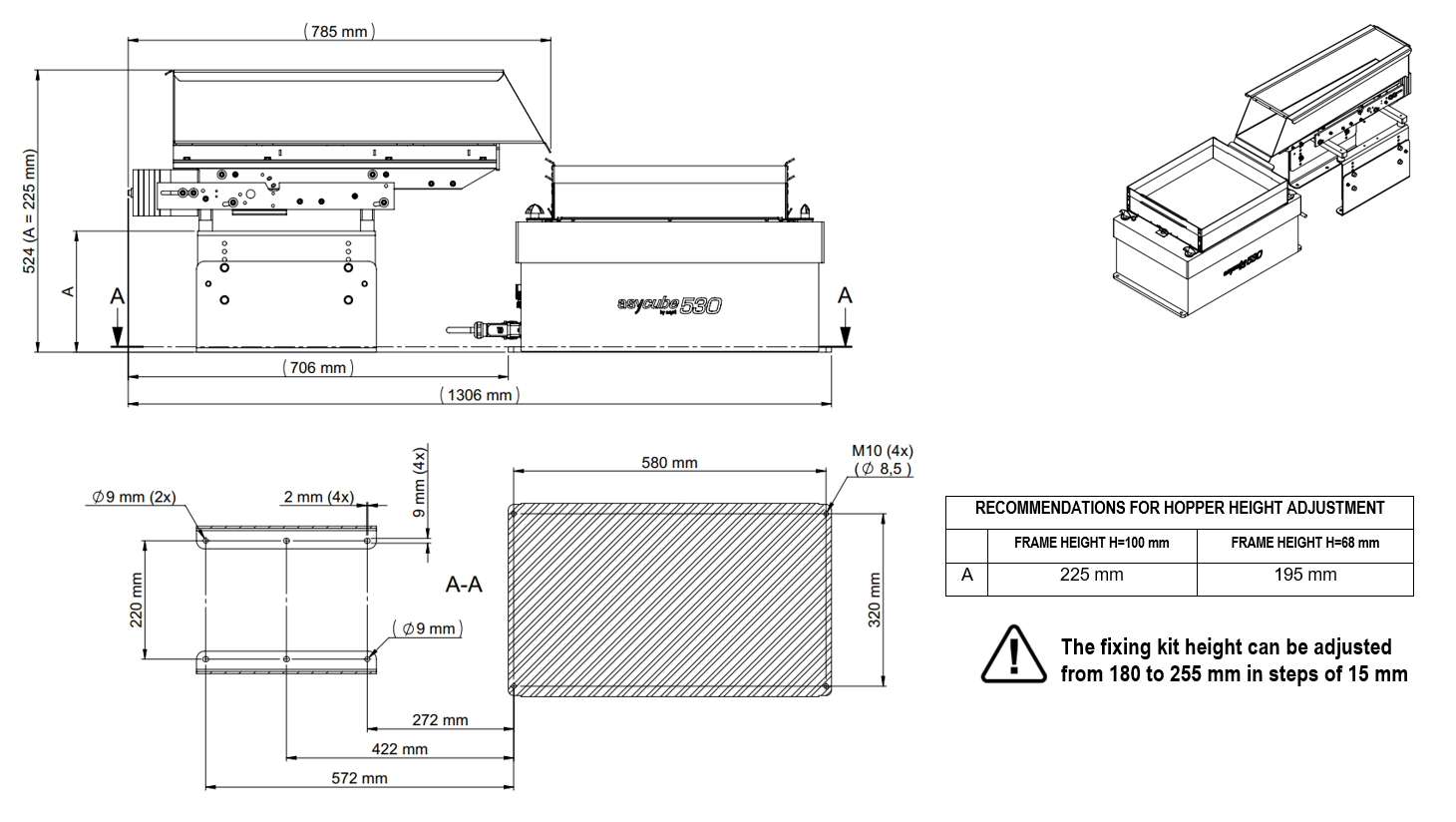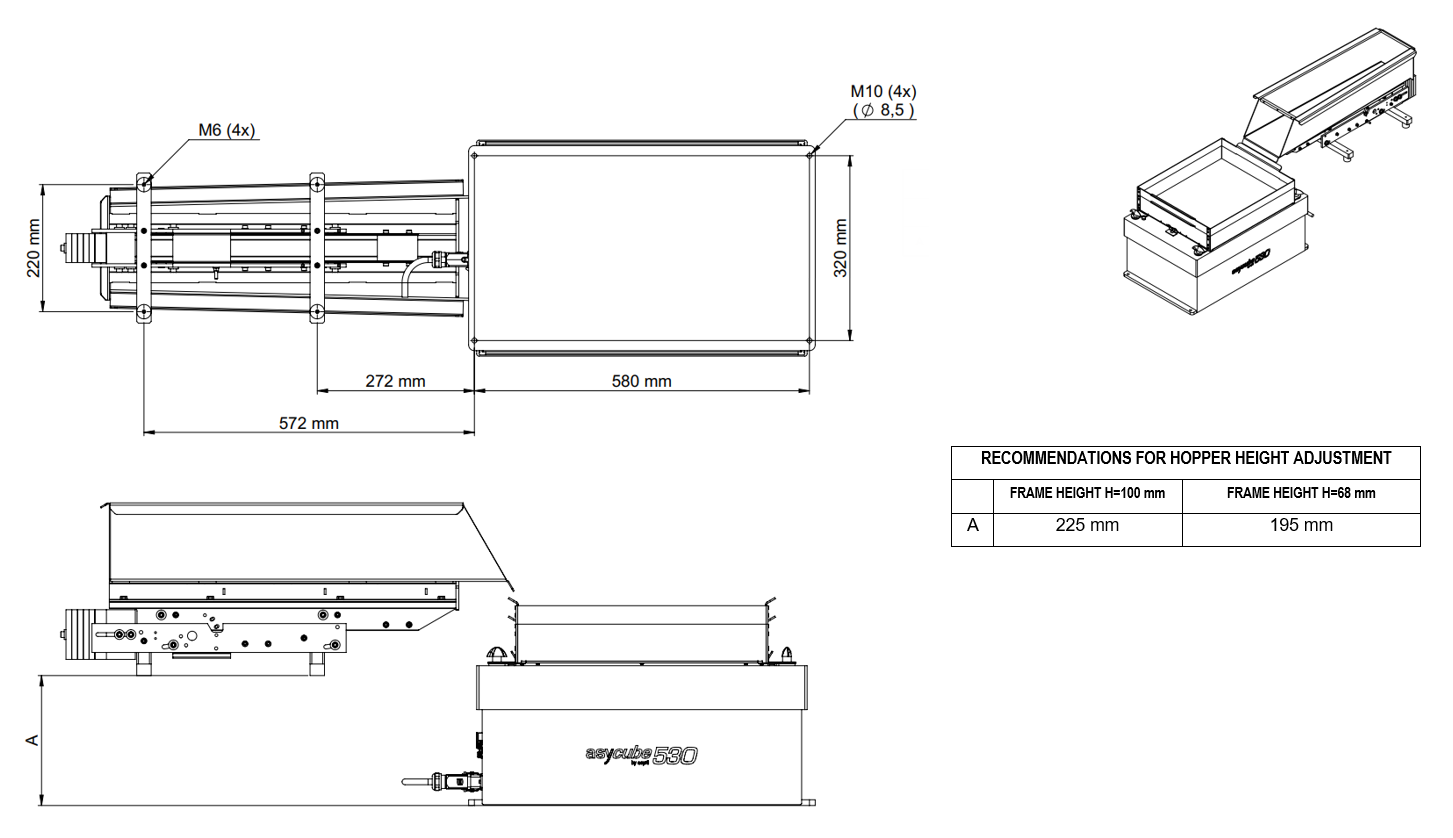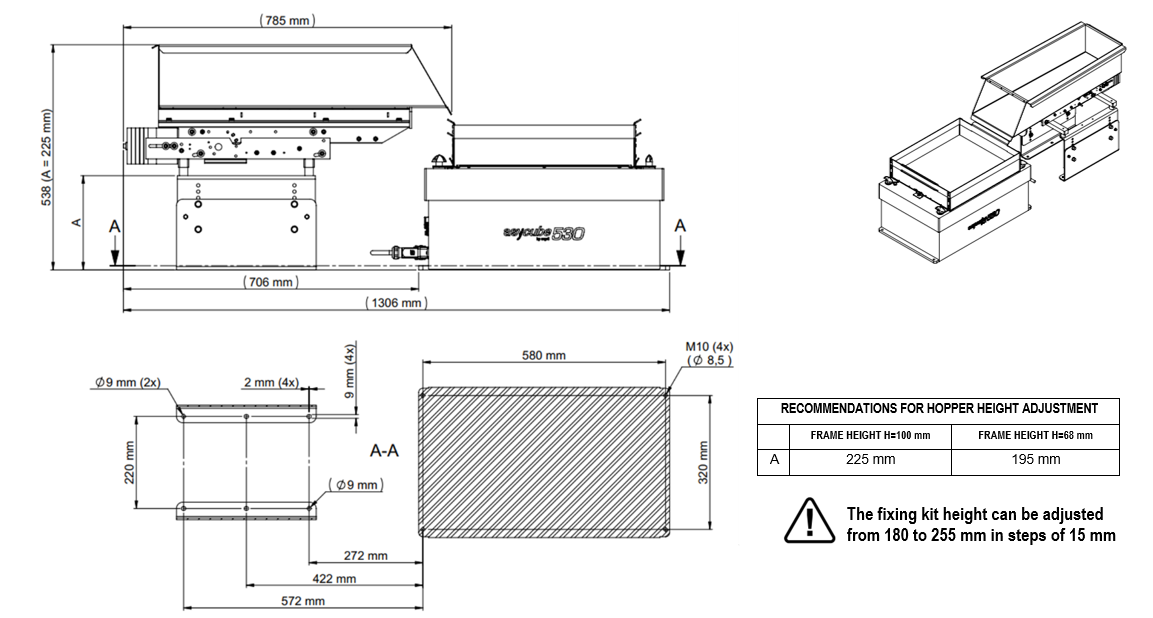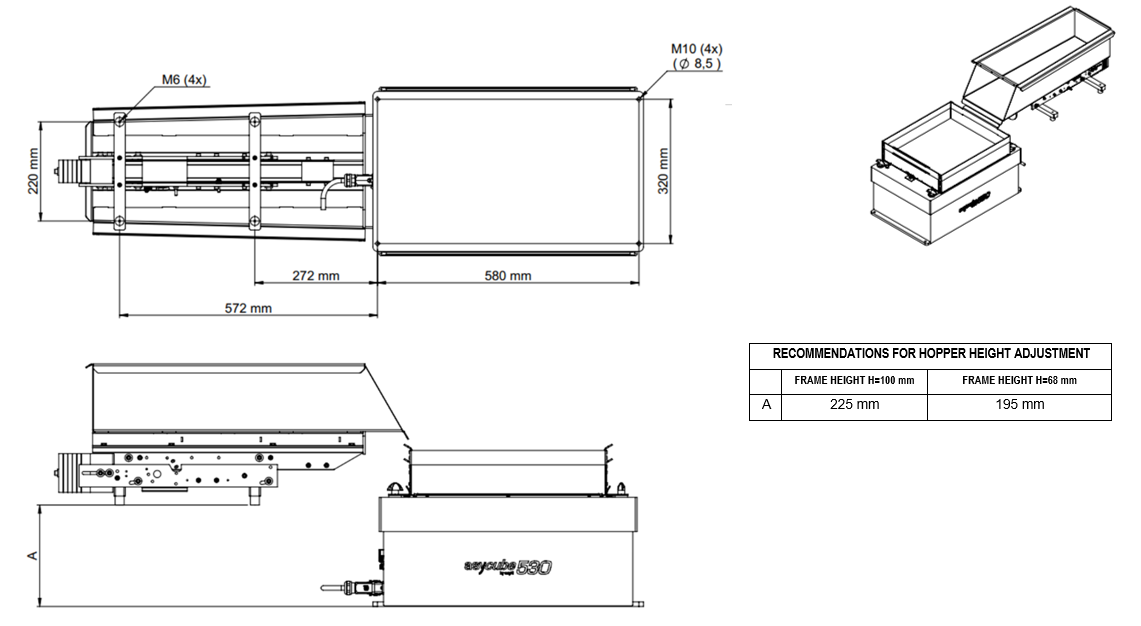Warnung
Sie lesen eine alte Version dieser Dokumentation. Wenn Sie aktuelle Informationen wünschen, schauen Sie bitte unter 2025.11 .Standard hoppers
The standard hoppers sold by Asyril include:
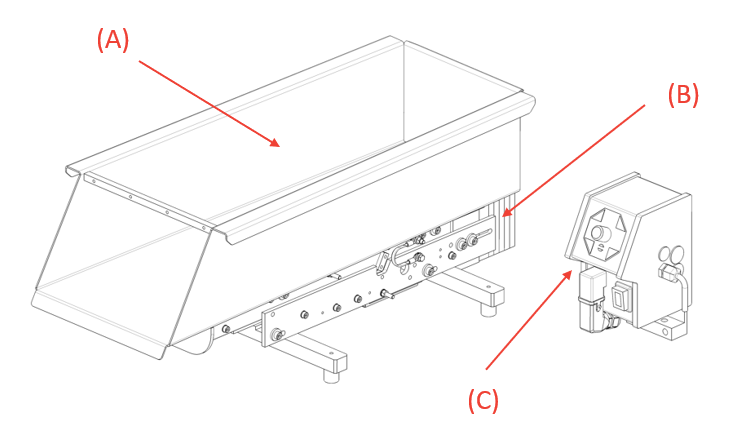
Abb. 56 Standard hoppers for Asycube 240, 380 and 530, including control unit
(A) The container (see Mechanische Schnittstellen) receiving the parts. Depending on the size of the parts to be fed and the required machine autonomy, different sizes may be used (1L, 2L, 3L, 10L or 15L). These containers are in stainless steel Inox 1.4301.
(B) The linear vibrator (see Mechanische Schnittstellen) that moves the parts on the container to feed the Asycube.
(C) The Steuergerät used to adjust the hopper vibration amplitude.
A set of three different cables is also included (see Elektrische Schnittstellen).
Anweisungen zum Schnellstart
Remove contents from box:
1x hopper unit
1x hopper control unit
3x cables (mains power cable, actuator power cable, digital control cable)
Install and mount the hopper, see more details in Montage.
Install the hopper control unit, see more details in Montage.
Connect the digital control cable from the Asycube digital output port to the hopper control unit.
Connect the actuator power cable from the hopper to the hopper control unit.
Connect to mains, either 115V or 230V and 50Hz or 60Hz.
Wichtig
The input voltage and frequency must match the voltage and frequency of the hopper vibrating mechanism. If this is not respected, the hopper could be irreversibly damaged.
Turn the hopper control unit ON/OFF switch to ON.
Enable the digital output of the Asycube.
Confirm that the hopper is vibrating.
Adjust the vibration level as needed with the potentiometer (0-100%) on the hopper control unit.
Elektrische Schnittstellen
Schaltplan
The hopper is supplied with the controller and cables ready to be installed. The Tab. 8 gives the current ratings for the different type of hoppers.
Wichtig
The input voltage and frequency must match the voltage and frequency of the hopper vibrating mechanism. If this is not respected, the hopper could be irreversibly damaged.
Hopper type |
AC characteristics |
Actuator nominal current |
Recommended rated current |
|---|---|---|---|
1L-Bunker |
115VAC/50 or 60Hz |
0.17A |
1A 1 |
230VAC/50 or 60Hz |
0.08A |
1A 1 |
|
2L/3L Hopper |
115VAC/50 or 60Hz |
1.32A |
2A 1 |
230VAC/50 or 60Hz |
0.6A |
2A 1 |
|
10L/15L Hopper |
115VAC/50 or 60Hz |
1.32A |
2A 1 |
230VAC/50 or 60Hz |
0.6A |
2A 1 |
The cables length supplied with the hopper and the wiring diagram are shown in Abb. 57. The signal polarity of the controller cable is detailed in Tab. 9.
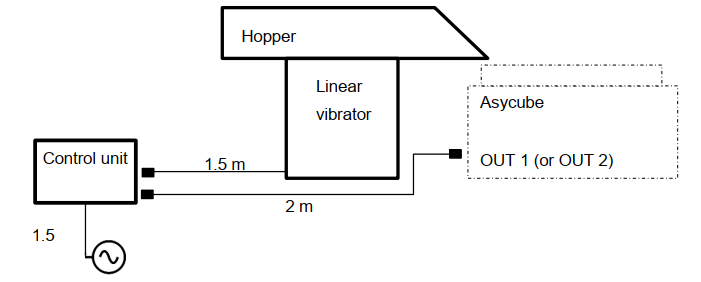
Abb. 57 Wiring diagram and cables length
Nummer |
Signal |
Interne Drähte |
Kabel des Bunkersteuergeräts |
|---|---|---|---|
1 |
L |
Mit 1 beschriftet oder braun |
|
2 |
N |
Mit 2 beschriftet oder blau |
|
3 |
PE |
Erdung (grün/gelb) |
Steuergerät
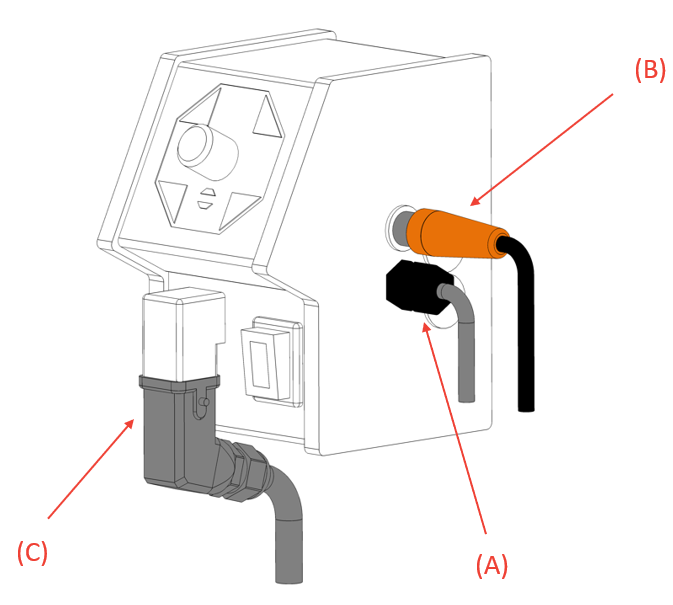
Abb. 58 Steuergerät
(A) Actuator power cable: connects the hopper controller to the linear vibrator.
(B) Digital control cable: connects the hopper controller to the Asycube.
(C) Mains power cable: connects the hopper controller to the mains supply.
The dimensions of the control unit including the supplied mounting bracket are detailed in Abb. 59.
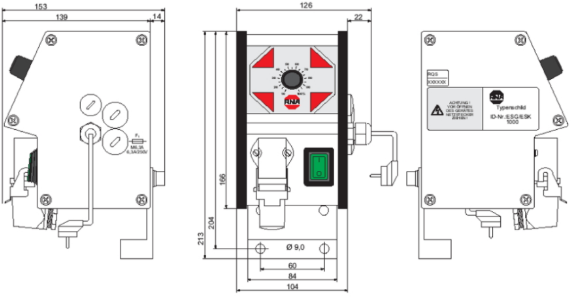
Abb. 59 Steuergerät
Bemerkung
Position the control unit so that you can reach the potentiometer.
Mechanische Schnittstellen
The different variants of hoppers (1L, 2L, 3L, 10L and 15L) can be mounted on the back or on the side of the Asycube. This enables applications such as multi-feeding where multiple different parts are being fed onto the same Asycube simultaneously via multiple hoppers, as illustrated in Abb. 60.
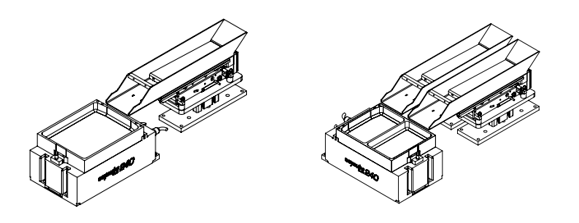
Abb. 60 Illustration of single part feeding versus multi-feeding with two parts
Bemerkung
With multi-feeding applications, since both parts will share the same vibration settings, attention must be paid to how parts are combined. A very heavy and large part combined with a light and small one might not give satisfying results. Since many factors can affect the vibration characteristics, we strongly advise you to perform some preliminary tests first.
The table below summarizes which hopper size can be used in conjunction with which Asycube with single part feeding or multi-feeding applications:
1L-Bunker |
2L-Bunker |
3L-Bunker |
10L-Bunker |
15L-Bunker |
|
|---|---|---|---|---|---|
Asycube 240 |
yes |
yes |
yes |
N/A |
N/A |
Asycube 380 |
yes |
yes |
yes |
yes |
yes 1 |
Asycube 530 |
yes |
yes |
yes |
yes |
yes |
1L-Bunker |
2L-Bunker |
3L-Bunker |
10L-Bunker |
15L-Bunker |
|
|---|---|---|---|---|---|
Asycube 240 |
yes |
N/A |
N/A |
N/A |
N/A |
Asycube 380 |
yes |
yes |
yes |
yes 2 |
N/A |
Asycube 530 |
yes |
yes |
yes |
yes 2 |
yes 2 |
Bemerkung
2L- und 3L-Bunker werden mit Montagefüssen geliefert, die mit vier M8x20-Schrauben direkt in der richtigen Höhe für einen Asycube 240 am Maschinengestell befestigt werden können.
Bemerkung
When pairing 1L, 2L, 3L, 10L and 15L hoppers with Asycube 380 and Asycube 530, the optional modular hopper fixing kit allows the hopper to be mounted at the ideal height.
Bemerkung
When two hoppers can be mounted on the same long side of the Asycube, a multi-feeding application with up to 4 parts can also be considered by mounting 4 hoppers symmetrically. If your application requires a configuration with more than two hoppers, please visit the multi-feeding section in EYE+ documentation or contact our support team from our website.
The following diagrams represent at which height the different hoppers shall be mounted and the position of the holes to fix the hopper to the machine base plate for single part feeding and multi-feeding with two parts.
1L-Bunker
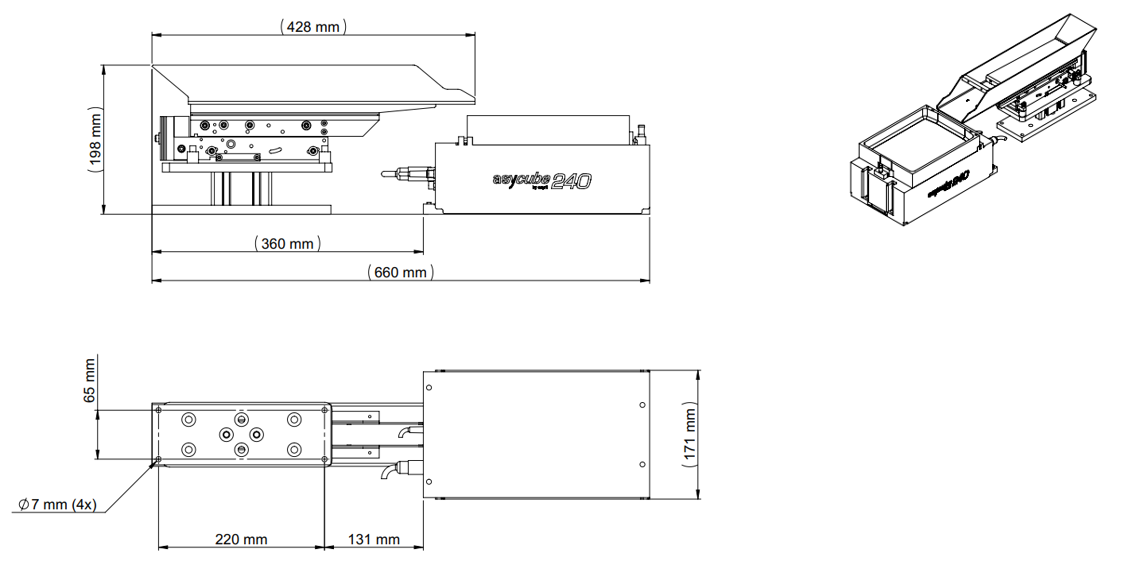
Abb. 61 Single part feeding: Asycube 240 with 1 L hopper
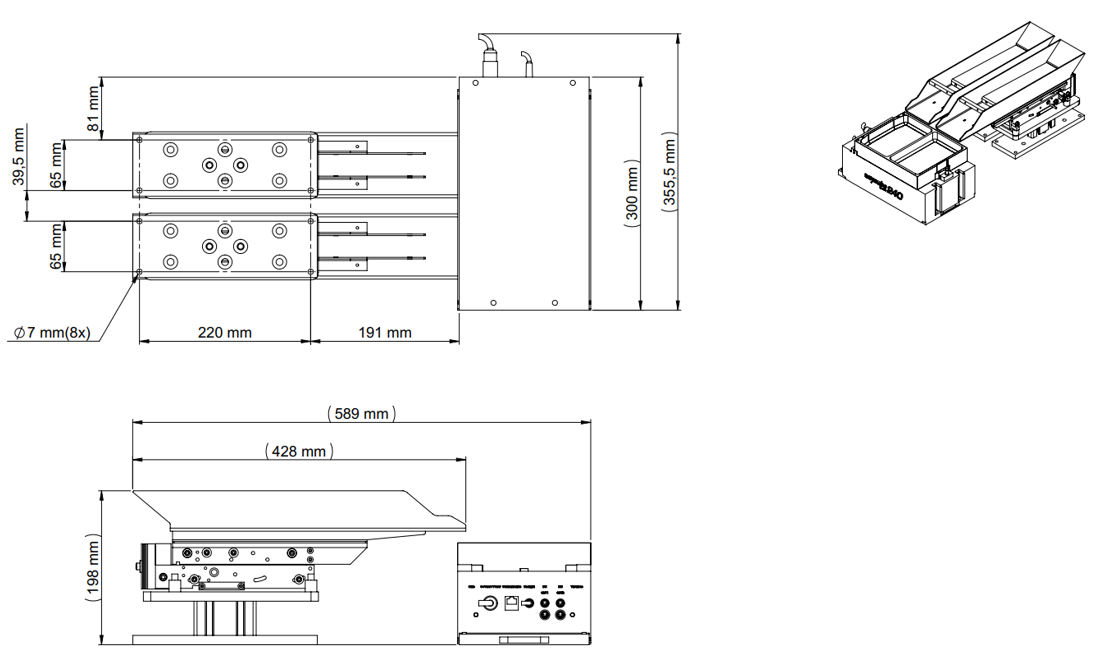
Abb. 62 Multi-feeding with two parts: Asycube 240 with two 1 L hoppers
2L-Bunker
Mechanische Schnittstellen des 3L-Bunkers
Mechanische Schnittstellen des 10L-Bunkers
Mechanische Schnittstellen des 15L-Bunkers
Modulares Befestigungskit
Tipp
Dieser Abschnitt betrifft nur die Asycube 380/530.
Das modulare Befestigungskit ermöglicht die Positionierung des Bunkers in einer Höhe, die perfekt an den Asycube 380/530 angepasst ist. Die Montageanleitung wird im Folgenden erläutert:
Schritt 1
Wählen Sie die Befestigungshöhe und befestigen Sie die erste Hälfte mit 2x M5 Schrauben
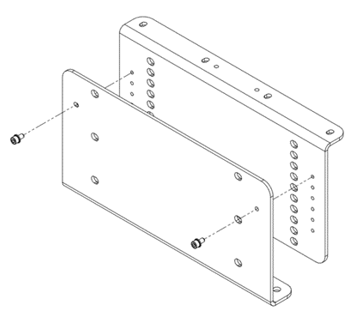
Bemerkung
Die Höhe des Befestigungskits kann in Schritten von 15 mm von 180 bis 255 mm verstellt werden.
Schritt 2
Sichern Sie die Montage mit 4x M8 Schrauben und Muttern
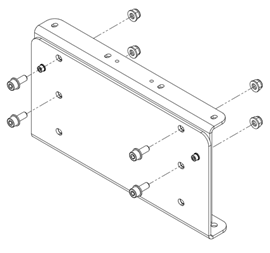
Schritt 3
Wiederholen Sie Schritt 1 und 2 für die zweite Hälfte.
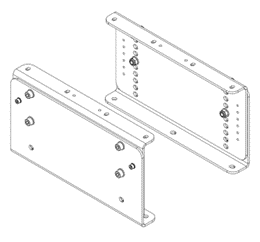
Schritt 4
Befestigen Sie das modulare Befestigungskit auf der Grundplatte der Maschine und befestigen Sie dann den Bunker darauf.
